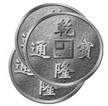题目内容
---We have red and yellow T-shirts. Which color do you like?---I’m afraid _______. I think blue will be OK.
A. both B. either C. neither D. none
【答案】
C
【解析】
试题分析:句意:我们有红色和白色的体恤衫。你喜欢那种颜色?恐怕两种都不合适。我认为蓝色合适。A都(两者)B任何一个(两者)C两者都不D三者或三者以上都不,结合句意故选C。
考点:考查不定代词的用法。

练习册系列答案
相关题目
________we will have an exam(测试) next week,_____ we have to go over our lessons.
| A.Because, / | B.Because ,so | C./ , / | D.So, so |

